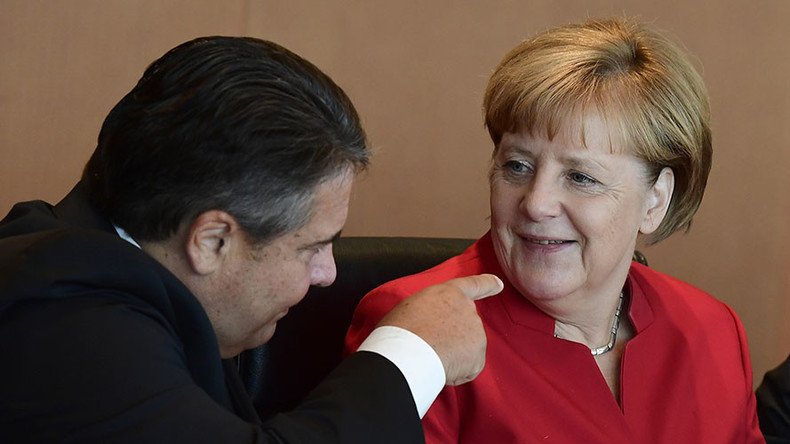Sigmar Gabriel, German vice chancellor and leader of the Social Democratic Party (SPD), said he won’t run for the post of chancellor, while sharply criticizing Angela Merkel’s legacy, saying her economic policies caused the “division of the EU.”
In a statement on Tuesday evening, Gabriel, who had long been touted as his party’s choice for chancellor in the September parliamentary elections, proposed former European Parliament President Martin Schulz to serve as his replacement.
Gabriel also announced he was stepping down as the SPD’s chairman in favor of Schultz.
“As the leadership of the SPD must be definitive and clear, I also propose him [Schultz] as the new chairman of the SPD,” Gabriel wrote in a statement, praising his record in the European Parliament as “unique work,” as cited by Die Zeit.
In particular, Gabriel singled out Schultz’s “decade-long opposition to right-wing populism and his commitment to social justice, democracy, and social cohesion in Europe,” contrasting him to current German Chancellor Angela Merkel, who the outgoing SPD chief accused of playing into the hands of Eurosceptic populist parties with her deeply unpopular austerity policy.
“For all her merits, she, together with Finance Minister Wolfgang Schäuble (CDU), bears the main responsibility for the division of the European Union,” Gabriel argued, adding that “no German Chancellor before [Merkel] has risked such a great economic, social, and political division [in the EU].”
READ MORE: Merkel’s CDU human rights speaker quits party over ‘open door’ refugee policy
The “relentless insistence on austerity” by Merkel and her government have, according to Gabriel, who also serves as the minister of economic affairs and energy, “no doubt contributed to the deep crises in the European Union since 2008,” including the increase in unemployment outside Germany and “to the isolation of a dominant German foreign policy,” as cited by Handelsblatt.
Merkel’s divisive economic strategy came in handy to opponents of common European policy and a united Europe who have thrived on popular discontent with austerity across Europe.
“One consequence has been the strengthening of anti-European populist parties and the damaging of not only democracy but also a good investment climate,” Gabriel pointed out, according to Reuters. He noted that this approach to the economy, which already “comes at the cost of sustainable growth,” can be “also dangerous for Germany.”
Frauke Petry, the chairperson of the Eurosceptic Alternative for Germany (AfD), questioned whether a candidate like Schultz was suitable for the job.
“Symbol of EU bureaucracy and a deeply divided Europe as chancellor candidate?” Petry tweeted.
READ MORE: ‘Trump was right to call Merkel’s immigration policy ‘catastrophic mistake’’
While Gabriel did not elaborate on his reasons for stepping down ahead of the general election, he told Stern tabloid in an interview on Wednesday that he did not believe the SPD could win with him as the face of the party.
“If I were to run now, I would fail, and with me the SPD,” Gabriel said, as cited by Bild.
“There are two basic prerequisites for a successful election campaign: the party has to believe in the candidate and gather behind him, and the candidate himself has to want it with every fiber of his heart, and neither of these applies to me to a sufficient extent,” he explained.
Gabriel’s decision to step aside for Schultz, whose candidacy is expected be confirmed by the SPD on Sunday, seems to be at least partially grounded in unfavorable opinion poll results. A recent poll conducted for Bild by the Emnid Institute shows an almost 20 percent gap between Merkel’s and Gabriel’s popularity. In a direct vote, 46 percent of Germans would vote for the incumbent chancellor, while only 27 percent would vote for Gabriel. At the same time, the poll showed an only one percent difference between Schultz and Merkel, who received 38 and 39 percent respectively.


